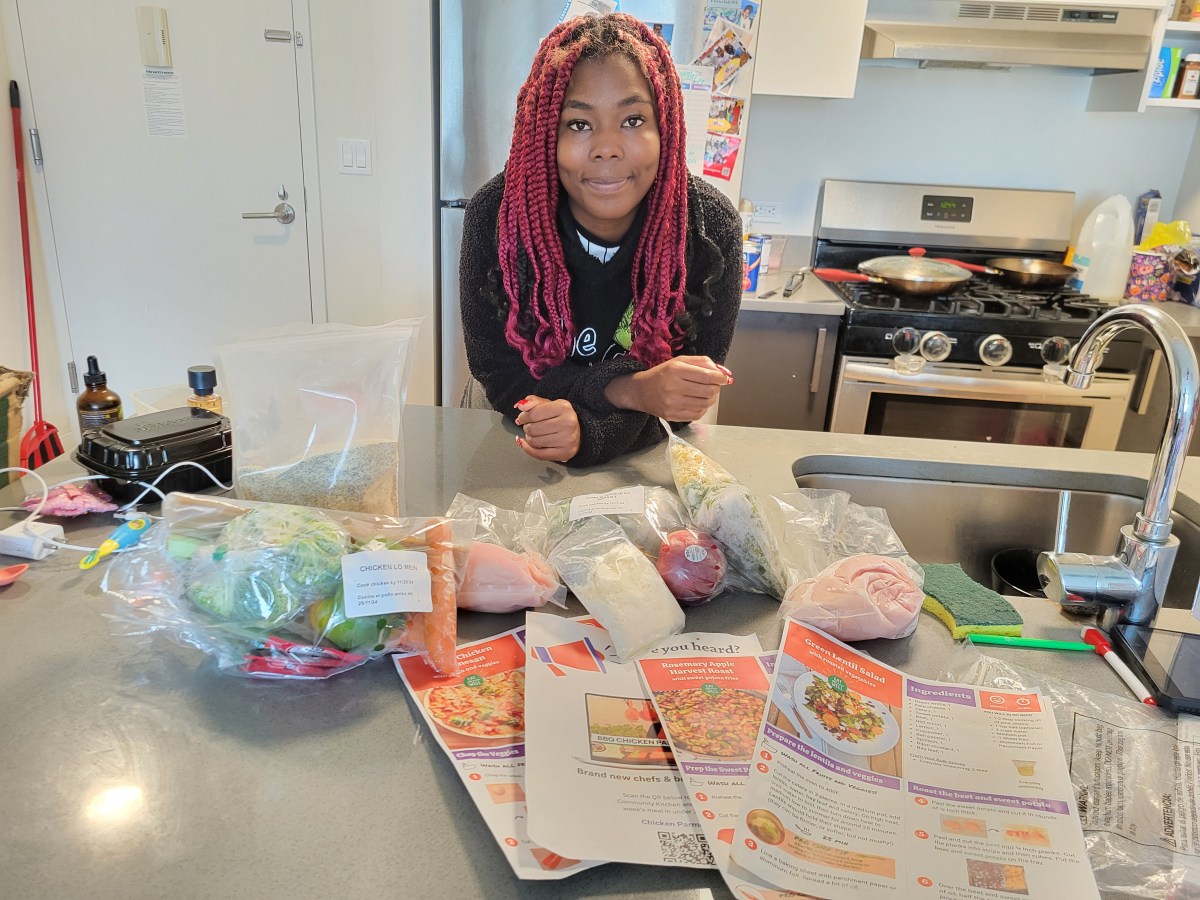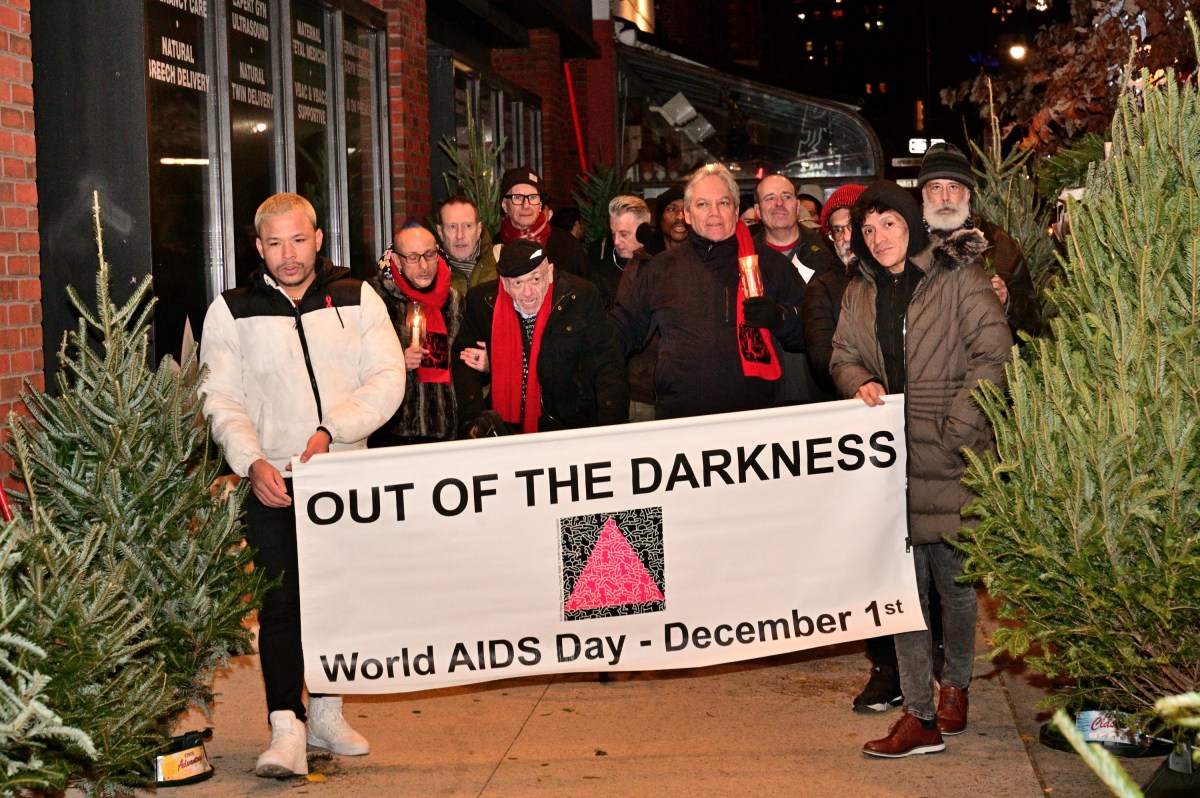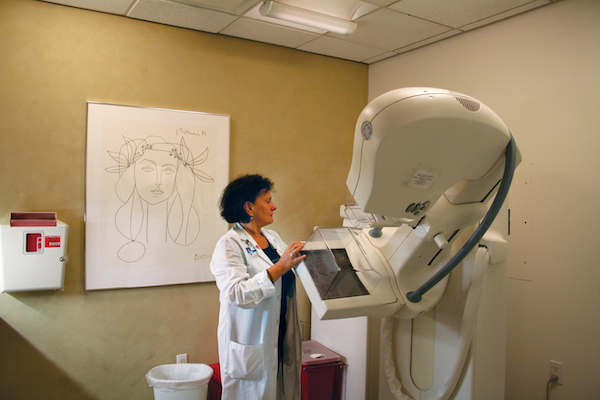
BY EILEEN STUKANE | October is Breast Cancer Awareness Month — but at Mount Sinai Beth Israel’s Appel-Venet Comprehensive Breast Service (on the main floor of the hospital’s cancer center at 325 W.15th St. in Chelsea) every month and every day is devoted to breast cancer awareness. Chelsea residents are fortunate to have this advanced breast care center in the community (a branch is also in the Phillips Ambulatory Care Center in Union Square), where physicians are involved in breakthrough studies, and individual needs are considered.
Programs such as the Special Surveillance Breast Program for women at increased risk of breast cancer, and the free Cancer Supportive Services for wellness, emotional support, and the holistic approach of integrative oncology, or mind-body therapies, enhance physical healing. Worth noting: a woman does not have to be treated for a breast condition at Mount Sinai Beth Israel to participate in any of the center’s many free, supportive programs, which include legal advice, journal writing, yoga, and even a free makeup workshop.
What’s important to remember is that although genetic research has progressed and treatments have improved, America’s breast cancer statistics have not changed in decades. It is estimated that this year alone, over 230,000 new cases of invasive breast cancer will be diagnosed as well as over 60,000 of non-invasive (in situ) breast cancer. That “one-in-eight women” figure — cited for the number of women who will develop invasive breast cancer in a lifetime — still stands, and the confusion over the effectiveness of mammographic breast screening continues.
CONTROVERSY AND HOPE
Dr. Susan K. Boolbol, chief of the Appel-Venet Breast Service, says she tells every woman who comes to see her that the typical story is: “We’re going to get you through treatment and you won’t have another problem from breast cancer. You’ll continue to follow up with us because if there is an issue, we want to know about it. But typically, and in the majority of the time, there’s never another problem.”
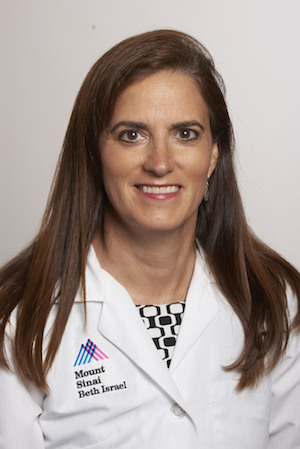
To know whether a breast condition exists, the US Preventive Services Task Force had controversially suggested that biennial mammograms be an individual choice for women ages 40-49, and recommended for women ages 50-74. For those over 75, there was insufficient evidence that mammography was even useful, and, in fact, may do more harm than good. This is not Dr. Boolbol’s recommendation. “Our program’s position is similar to the position of any national or international organization that deals with breast cancer,” she says. “Average risk women should start screening mammograms at forty years old, and have them every year.”
She asserts that there is no age-dependent cutoff for screenings. Recognizing that “there are seventy-five-year-olds who are running marathons while other seventy-five-year-olds are bedridden,” Dr. Boolbol says that women ages seventy-five and over, who are in good health, should continue yearly mammography screenings. Research at the Appel-Venet Breast Service she leads has provided strong evidence for that recommendation.
Dr. Sarah Cate, lead physician for the Special Surveillance Breast Program, reports that the program reviewed mammography screenings of over 2,000 of their older patients and found that in women over age 75, yearly mammograms should be recommended, as there was a higher risk of undetected breast cancer than there was risk from radiation exposure.
In another of the center’s reviews, in looking at over 7,500 mammograms of women ages 40-49, a significant number of breast cancer cases were detected. This finding reinforces the recommendation for annual mammograms starting at age 40 for average risk women. However, Dr. Cate also recommends that “women who have a strong history of breast cancer risk start screening ten years prior to the age of the first person who developed breast cancer in the family.”
For mammography screening at the center’s Breast Imaging Department, call 212-604-6071.
At the Appel-Venet, Dr. Boolbol is also involved in a national multicenter clinical trial of the effectiveness of treating breast tumors using the freezing technique of cryoablation, rather than removing them surgically. With cryoablation a probe is inserted into the breast through a small incision, and a woman only needs local anesthesia. “This is the freezing of cancers instead of operating and removing them,” Dr. Boolbol explains. “The probe sits in the center of the cancer and as it cools, it forms an ice ball around the cancer and effectively kills all the cancer cells. This is done on smaller breast cancers as a way to avoid surgery.”
Dr. Boolbol’s study, which will eventually include 100 participants, involves women over age 65 with tumors under two centimeters. The Phase I testing of cyroablation involved follow-up surgery on tumors to confirm cancer cell death, but this Phase II trial will not require surgical removal for confirmation. “Cryoablation is changing the way we treat breast cancer and that’s the goal. We cannot continue to treat it the same way surgically,” says Dr. Boolbol.
FOR WOMEN WITH HIGHER RISK OF BREAST CANCER
The Special Surveillance Breast Program at the center is there to help women who have — among other factors — a known history of a first-degree relative with breast or ovarian cancer, a family history of male or female breast cancer (particularly premenopausal), ovarian cancer, or a known BRCA gene mutation. “There has been a dramatic change in genetic testing since about April 2014,” says Dr. Cate. “We now are testing for up to twenty-five genes that are associated with breast cancer, so this really gives women a lot more information in terms of their individual risk, because each gene carries a different risk for breast cancer, along with other cancers.”
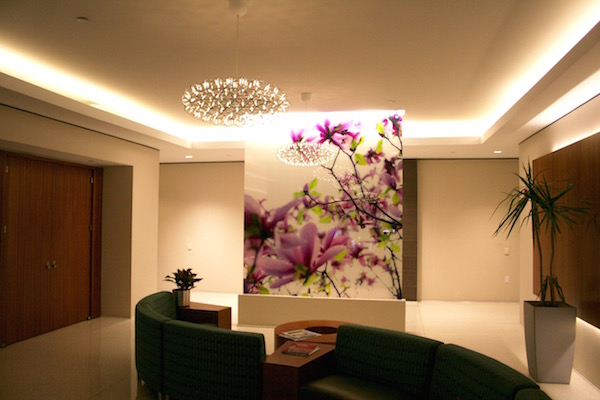
A team of physicians, radiologists, pathologists, genetic counselors, and psychologists carry out individualized breast assessment and create a screening plan for each higher-risk person, and there are many support groups. “There’s someone here seeing patients five days a week,” says Dr. Cate. “We’re here for everyone, but we’re particularly available to help people who live in the area.”
To connect with the program, call Dr. Cate: 212-367-0133.
YOGA, T’AI CHI AND MORE
“We have a lot of programs that are free and open to breast care patients in the community, and you don’t have to be one of our patients,” says Alison Snow PhD, social work supervisor for the center’s Cancer Supportive Services. She mentions that today it has almost become “a standard in practice that’s accepted” for supportive services such as acupuncture, yoga, t’ai chi, and nutritional help to be included in treatments for breast disease. (Historically speaking, St. Vincent’s Medical Center was at the forefront, offering supportive services years ago when it initially ran this center.)
“I think there’s increasing evidence that these kinds of services help women with their outcomes, statistically, and in regard to quality of life,” she says. A massage therapist is available four days a week for women undergoing chemotherapy.
A pool program designed for post-breast surgery patients is scheduled at the Sol Goldman Y at 344 E. 14th St. (btw. First and Second Aves.). Journaling Workshops have has been added as well as “Look Good, Feel Better” makeup session.
For further information and registration, call 212-367-1780, or visit wehealny.org.
Eileen Stukane is a frequent contributor to Chelsea Now on the topics of affordable housing and landlord/tenant issues. She is co-author of “The Complete Book of Breast Care” (available on Amazon.com). Her memoir, “Running on Two Different Tracks,” was recently released by Shebooks and is available at amzn.to/1PqZens.



